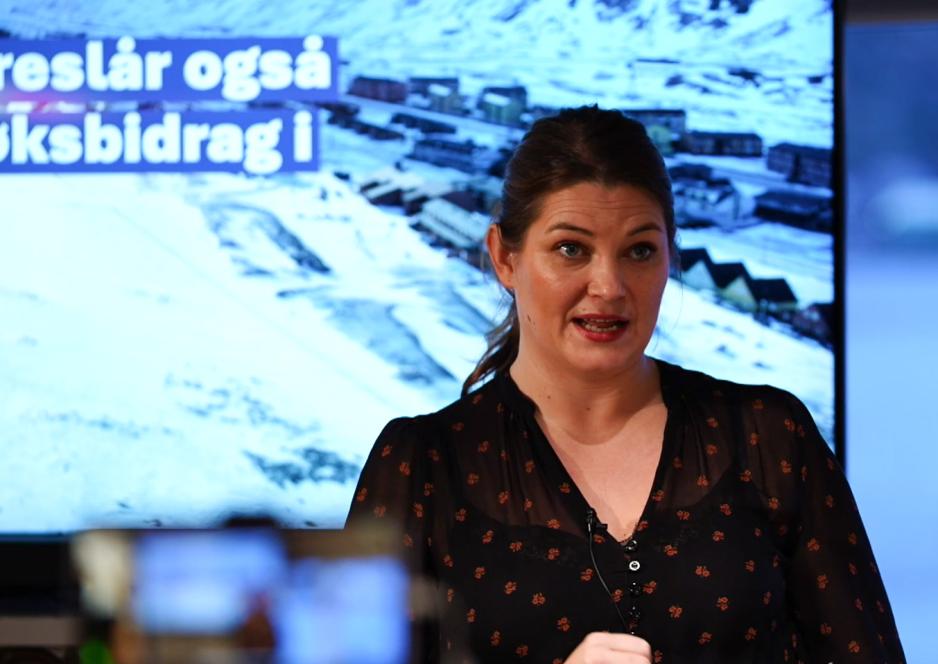Tourism Tax in Longyearbyen for Comment

The Norwegian Minister of Industry, Cecilie Myrseth (Labor), proposed a tourism tax in Svalbard during a press conference in Tromsø on November 19th. (Screenshot from the broadcast)
The Norwegian Minister of Industry, Cecilie Myrseth (Labor), is launching a visitor's tax for Longyearbyen. The next phase it to consider how this can be expanded to apply to cruise tourists as well.
Yet another Svalbard proposal is now up for comment from the Norwegian government. This time, it concerns the polar island's disputed tourism industry, which the government itself depicts as one of the most important industries in Svalbard.
In a press release on Thursday, the government announced that it will facilitate the industry's further development in a way that protects nature and does not burden the local community.
"Increased activity leads to degradation on the already stressed infrastructure, which triggers higher maintenance costs and the need for investments," says the press release.
Must contribute
"Those who visit Longyearbyen must contribute to financing the infrastructure and the services the tourism industry needs," says Minister of Industry Cecilie Myrseth (Labor).
One proposal is to establish an obligatory accommodation fee to contribute to the local community. This fee would also apply to every passage that disembarks or goes on board cruise and expedition ships in Longyearbyen.
The hearing deadline is set for January 3rd, 2025.
"Parts of the income will accrue to the Longyearbyen Community Council, which is partly responsible for infrastructure in Longyearbyen," says Minister of Justice and Public Security Emilie Enger Mehl (Center).
Distributed
In the Svalbard white paper, submitted this spring, the government announced that a proposal for a tourist tax would be drawn up.
Proposals for legal authority to establish regulations on tourism tax in Longyearbyen are now being submitted for comment as part of the tourism tax bill.
The collected funds must be distributed between the state and Longyearbyen Community Council, which is responsible for infrastructure and services such as roads, water, drainage, energy and health, and emergency and rescue resources, which are fundamental prerequisites for tourism activity.
In the next phase, the Ministry of Justice will draft a proposal for regulations that will more fully regulate the tourism tax. The regulation will be submitted for comment. The bill, which has now been submitted for public comment, has a consultation deadline of January 3rd, 2025.




